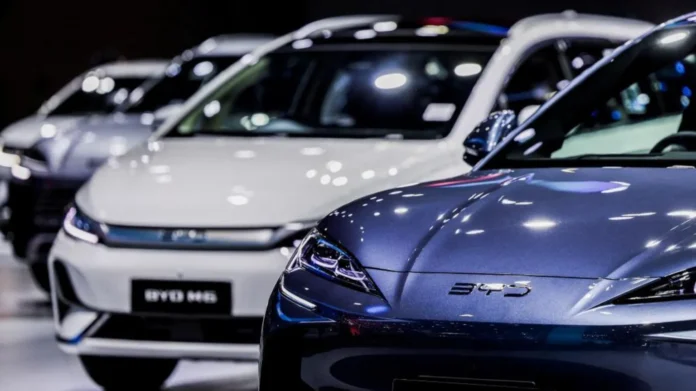BYD, the world’s largest electric vehicle (EV) manufacturer, saw its shares drop by up to 8% in Hong Kong on Monday following disappointing quarterly results, as a brutal price war in China’s EV market continues to squeeze margins and investor confidence.
The Shenzhen-based automaker reported a 30% year-on-year decline in net profit for Q2 2025, falling to 6.4 billon yuan ($900 million; £660 million). The results missed analyst expectations, despite strong overseas sales and BYD’s ambitious target to sell 5.5 million vehicles globally this year. By the end of July, however, it had only sold 2.49 million units.
In a statement filed with the Hong Kong Stock Exchange, BYD cited “increased price competition” as a major factor eroding industry-wide profits. It also criticized what it called “industry malpractices” — including excessive marketing and unsustainable sales tactics — that have destabilized the market. Companies are increasingly offering zero-interest loans and subsidized pricing to lure buyers.
Local competitors Nio and XPeng, along with Tesla, have all aggressively cut prices in recent quarters, intensifying the battle for market share. According to industry estimates, average car prices in China have fallen by around 19% over the past two years, currently averaging 165,000 yuan ($23,100; £17,100).
“The EV market in China has reached fever pitch,” BYD said, adding that the environment has become “cut-throat.”
The Chinese government has expressed growing concern about the price war’s impact on the broader economy, with officials urging automakers to reduce aggressive discounting and warning of potential oversupply in the long run.
Despite its scale and global reach — BYD overtook Tesla in annual revenue in 2024 — the company’s latest earnings highlight how even dominant players are vulnerable in a hyper-competitive landscape.
Laura Wu, an industrial policy expert at Singapore’s Nanyang Technological University, noted that BYD’s underwhelming performance “signals broader structural issues,” including overcapacity and intense domestic rivalry. “Consumer price cuts may look attractive now, but they’re fueling long-term risks,” she warned.
As China’s EV industry matures, analysts suggest consolidation may be inevitable — with weaker players likely to be squeezed out in the race to survive.

